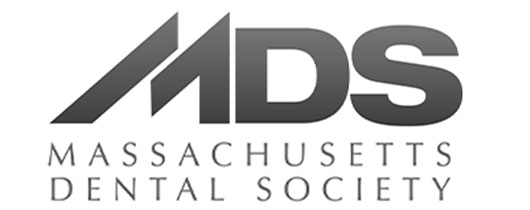Good dental hygiene is not just about having a bright smile; it is also very important for overall health. This guide will help you learn more about improving your oral health and give you the tools you need to keep your smile happy and healthy for many years.
The Importance of Oral Health in Overall Well-being
Oral health is about more than just your mouth. Recently, public health officials and healthcare providers have highlighted the close connection between oral health and overall health. Studies show that poor oral health can lead to serious problems, such as heart disease, stroke, diabetes, and breathing issues.
For example, inflammation and bacteria from gum disease can enter the bloodstream and affect other organs. That’s why good oral hygiene is key to overall well-being.
Focusing on oral health can help protect general health and lower the risk of certain health conditions. It’s important to make oral health a priority, just like other parts of your health.
The Best Brushing Techniques to Remove Plaque
Using the right brushing techniques is very important for removing plaque and preventing gum disease. Angle your toothbrush at 45 degrees toward the gum line. Use gentle, short strokes to clean each tooth. Remember to brush the inner, outer, and chewing surfaces as well.
Using circular motions can help effectively remove plaque and food particles. For better results, spend at least 30 seconds cleaning each part of your mouth.
Access to good oral hygiene services and regular visits to a dental hygiene practice are key to maintaining good oral health. Dental hygiene practices can provide professional cleaning, tips on brushing techniques, and personal advice to keep your smile healthy.
The Role of Flossing in Oral Hygiene
Brushing can clean the surfaces of your teeth that you can easily reach. However, flossing is important for getting into the tight spaces between your teeth where your toothbrush can’t go. These small areas can gather food and plaque. If you ignore them, it can lead to dental problems.
If you add flossing to your daily routine, you can remove food bits, stop plaque build-up, and help your gums stay healthy.
Correct Flossing Techniques for Healthy Gums
To floss correctly, first break off about 18 inches of floss. Wind it around your middle fingers, leaving some space to work with. Gently guide the floss between your teeth using a back-and-forth motion. Don’t snap the floss, as this can hurt your gums.
When the floss reaches your gum line, curve it in a C-shape around each tooth. Gently move it up and down to clean the tooth’s surface. Use a fresh piece of floss as you move to the next tooth.
Regular flossing and visits to a dental hygiene practice are important for maintaining good dental health and avoiding gum disease. If you notice bleeding or pain while flossing, talk to your dentist. It may mean you have gum problems.
The Benefits of Mouthwash and Tongue Cleaning
Mouthwash and tongue cleaning are helpful additions to brushing and flossing. Mouthwash can clean places that are hard to reach with a toothbrush, giving you a better overall clean.
Cleaning your tongue removes bacteria and food particles from its surface. This can help reduce bad breath.
Selecting the Right Mouthwash
There are many types of mouthwashes on the market, each designed for different needs. It’s important to choose the right one for your oral health.
Think about your oral health issues, how sensitive your teeth are, and what you prefer. For example, if you often get cavities, go for a mouthwash that has fluoride. If your teeth are sensitive, pick an alcohol-free and gentle formula.
Talk to your dentist or someone in the dental hygiene profession who has passed the national board exams. They can give you personal advice. This will help you find a mouthwash that fits well with your oral hygiene routine and meets your specific needs.
Techniques for Effective Tongue Cleaning
Although the tongue is often ignored, cleaning it is very important for good oral and dental health. Adding this easy step to your daily dental hygiene routine can help freshen your breath and create a healthier mouth.
You can clean your tongue with a toothbrush or a special tongue scraper. Gently scrape from the back to the front. This helps to remove any coating or leftover food. Rinse your mouth well with water after you clean your tongue.
If you feel any pain or irritation, stop using it immediately and talk to your dentist. By making tongue cleaning part of your routine, you can improve your breath and keep your mouth healthy.
How Regular Checkups Prevent Dental Diseases
Regular dental checkups are essential for preventing dental problems like gum disease and tooth decay. During these visits, your dentist can spot early signs of these issues and provide preventive care.
Professional cleanings help remove plaque and tartar, keeping them from building up and harming your teeth and gums. Your dentist can also use fluoride treatments to strengthen your tooth enamel, which helps resist decay.
Taking care of these problems during routine checkups can save you from needing more expensive treatments later. Regular visits to a dental hygiene practice also let you manage your dental health actively. This way, you can keep a healthy smile for many years.
Understanding the Connection Between Diet and Oral Health
The food and drinks you eat can greatly affect your oral health. Certain foods can lead to plaque buildup and tooth decay. In contrast, some foods can help keep your teeth and gums healthy.
Knowing how your diet impacts your oral health allows you to make better choices for a brighter smile.
Foods and Habits to Avoid for Healthy Teeth
Some foods help oral health, but others can cause oral disease. It’s important to limit sugary foods and drinks. Sugar feeds bacteria in your mouth, leading to plaque buildup and tooth decay.
Food and drinks that are acidic, like citrus fruits and sodas, can harm tooth enamel. This makes teeth more prone to decay. Plus, using tobacco products is bad for oral health. It raises the chance of gum disease, oral cancer, and more issues.
Try to snack less between meals. Brush your teeth well after you eat sugary or acidic foods and drinks. By choosing healthier options and keeping good habits, you can protect your smile.
Maintain Great Oral Hygiene
Maintaining good dental hygiene is very important for your overall health. Regular practices like brushing, flossing, and visiting the dentist can help prevent dental problems. These actions also keep your teeth and gums healthy. Make sure to pick the right tools. Use a good toothbrush and dental floss. Also, try to include mouthwash and clean your tongue in your daily routine. Eating a balanced diet is key to oral health, too. Focus on your dental care for a healthy lifestyle and a confident smile. If you have any worries or need assistance with your oral hygiene routine, contact Hassey Do Duy Dental Associates.




